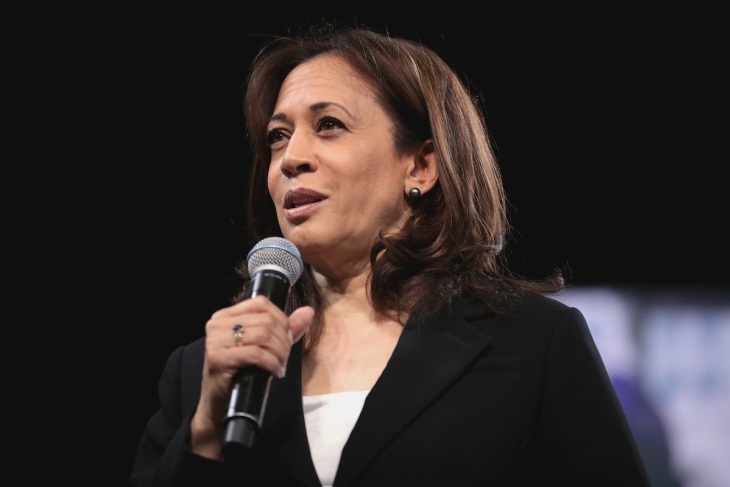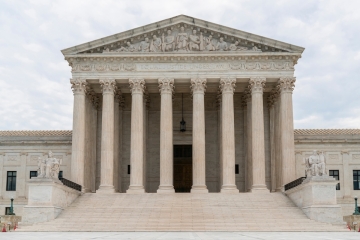It is rare, but not unusual, for presidents to ask members of the opposing party to serve on their cabinets. Both Trump and Biden were strictly partisan with their appointments, but if Vice President Harris wins, she has pledged to bring back the symbolic gesture, historically used at key moments to project unity and bipartisanship—both of which will be in short supply no matter who emerges triumphant from this coarse election contest. The defense secretary stands out as the most common fit for such an appointment (e.g., William Cohen under President Clinton and Robert Gates under President George W. Bush and President Obama). But there’s a compelling argument to make that a President Harris would do well to shine a spotlight on education, given the federal government’s retreat on the issue in recent years.
Picking a Republican to serve as education secretary would also be uniquely historic: None of the twelve men and women who have served as the nation’s top education officer ever did so under a Commander in Chief of a different party. The New York Times recently ran a list of GOP prospects for the Harris cabinet that featured a constellation of former and current state and federal officials. Let’s work from that to see if any might fit the bill, and speculate on the implications for Uncle Sam’s role in education:
1. Sen. Mitt Romney (UT): Not seeking re-election to the Senate, Romney would be a brow-raising choice—at least among “progressives”—for education secretary, in light of his “vigorous opposition” to blanket student loan forgiveness. But he would be a breath of fresh air, given his track record on the issue dating back to his tenure as Governor of Massachusetts:
We added more school choice. My legislature tried to say no more charter schools. I vetoed that, overturned that… These kinds of principles drove our schools to be pretty successful. As a matter of fact, there are four measures on which the federal government looks at schools state by state. My state's number one among all the states in all four of those measures, fourth and eighth-graders English and math. Those principles, testing our kids, excellent curriculum, superb teachers, and school choice. Those are the answers to help our schools.
2. Sen. Todd Young (IN): It’s not reflected in his committee work, but education is an issue that’s near and dear to the senior senator from my old stomping grounds in Indiana. No fan of Trump’s, Young has called for “modernizing” America’s education system, with a focus on strengthening career and technical education. On the need for skilled workers, he might find common cause here with the “opportunity economy” that Harris keeps talking about. Young has also worked across the aisle to reduce college costs and promote upward mobility, and is a staunch supporter of school choice.
3. Former Gov. Jeb Bush (FL): For the past twenty-five years, governors have been central to education policymaking, yet few can rival Bush’s dedication to making it a top priority. During his time leading the Sunshine State, Bush implemented sweeping education reforms that set the bar for other states. His policies emphasized standards, testing, and accountability, along with school choice. Through his organization, ExcelinEd, the former governor continues to have an outsized impact on education, promoting and advocating for the reforms that he championed in Florida.
4. Former Gov. Asa Hutchinson (AR): A vocal critic of Trump, Hutchinson was spotted making the rounds at the DNC convention back in August. The former governor and GOP presidential candidate has been coy about his interest in a Harris administration but clear about his desire to add another chapter to his long and storied political career. Secretary of Education would seem to be a perfect fit if Harris tapped the folky and affable Arkansan who made computer science education a priority alongside other popular ed policies.
5. Former Gov. John Kasich (OH): Known for his centrist views and willingness to work across party lines, Kasich endorsed Joe Biden back in 2020 and briefly appeared at the Democratic convention that year. His record on education reform is extensive but without the high-profile of, say, Jeb Bush. From A–F letter grades to charter school accountability, Kasich wasn’t afraid to ruffle feathers. He may be best known for his attempt to rein in collective bargaining for teachers, an effort that was ultimately struck down by voters.
Here are a couple of others not mentioned by the Times that would also be worth praising:
6. Former Gov. Brian Sandoval (NV): A former federal district judge who has already been confirmed once by the Senate, Sandoval would be a dark horse pick. In 2015, as governor, he spearheaded what was arguably the most comprehensive education reform package in the nation that year. The dizzying array of bills flying out of the Silver State included the nation’s first nearly universal ESA law, a read-by-three law, teacher pay-for-performance legislation, additional funding to grow more charter schools, and the establishment of a special statewide district for Nevada’s lowest performing schools—which was initially led by Pedro Martinez, currently the embattled CEO of Chicago Public Schools. Unfortunately, some of these initiatives have since been repealed, but the boldness of Sandoval’s vision was remarkable for its era.
7. Former Gov. Charlie Baker (MA): Now president of the NCAA, Baker was consistently one of the nation’s most popular governors during his time in office. He firmly supported MCAS, the state’s standardized test, emphasizing its essential role in creating a “level playing field” and setting a high standard for academic achievement. Baker also appointed members to the state board of education that shared a focus on accountability and improving educational outcomes. Harris’s team should also note that the former governor has expressed interest in returning to politics.
—
Like the election itself, the selection of any of these Republicans for education secretary would be sui generis. Harris would surely face significant pushback from within the Democratic Party and the teachers unions on any of these candidates. Still, if she chose to buck her coalition’s most progressive voices—as remote a possibility as that may be—it would be less about ed reform and more about sending a signal about the importance of character, temperament, and civility as embodied by each of these estimable public servants. Of course, he or she would have to endorse enough of Harris’s education policies to make the cut, something that remains to be seen.
To be sure, nobody knows what those policies will be, but odds are Harris’s will be a continuation of Biden’s. As such, there’s little reason to get excited, regardless of whom she picks. But even if little gets done in the way of policy over the next four (or eight) years, a Republican secretary of education serving in a Democratic administration could augur well for the eventual revival of bipartisan education reform. In and of itself, that would be a minor victory.




